13 Engaging educational activities on 15th August – India’s Independence Day
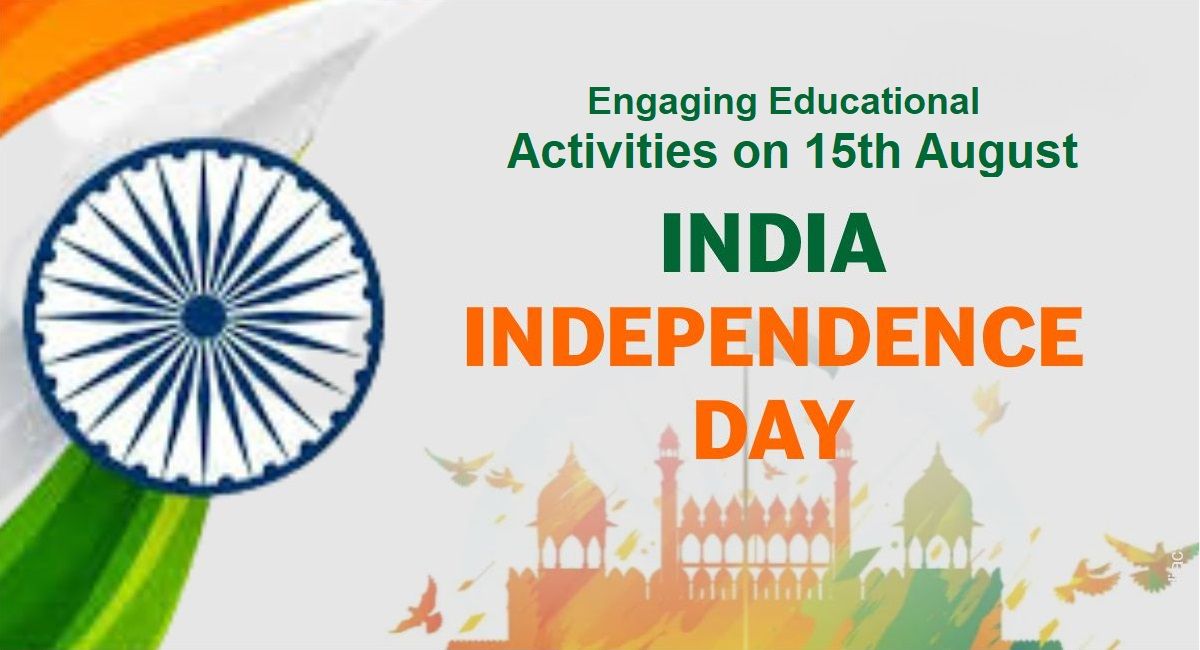
Checkout 13 Engaging educational activities on 15th August – India’s Independence Day
Engaging in educational activities on 15th August – India’s Independence Day, is a wonderful way to honor the country’s history and learn more about its journey to freedom. Here are the 13 curated educational activities you can consider:
1. Read Historical Accounts: Spend time reading about India’s struggle for independence, the leaders who played pivotal roles, and the events that shaped the nation’s history. Engaging educational activities on 15th August could include books, articles, or online resources. Here are some notable Indian historical accounts related to August 15th:
- Indian Independence (1947): August 15, 1947, marks India’s independence from British colonial rule. On this day, Jawaharlal Nehru, India’s first Prime Minister, raised the Indian national flag at the Red Fort in Delhi, symbolizing the end of British colonial domination and the birth of the modern Indian nation.
- Tryst with Destiny Speech: On the eve of India’s independence, August 14, 1947, Jawaharlal Nehru delivered his famous “Tryst with Destiny” speech. The speech eloquently expressed the aspirations of the Indian people and their journey towards freedom.
- Formation of Indian National Army (1942): On August 15, 1942, during World War II, Subhas Chandra Bose announced the formation of the Indian National Army (INA) in Singapore, with the aim of liberating India from British rule. The INA played a significant role in the struggle for independence.
- Bharat Ratna Award Instituted (1954): On January 2, 1954, the Bharat Ratna, India’s highest civilian award, was instituted. However, it’s usually announced on August 15th, along with the Independence Day honors.
- Formation of AIIMS (1956): On August 15, 1956, the All India Institute of Medical Sciences (AIIMS) was established in New Delhi. AIIMS, New Delhi has since become one of India’s premier medical institutions.
- First Republic Day (1947-1950): Although not directly related to August 15th, it’s worth mentioning that India adopted a new Constitution on January 26, 1950, which officially declared India a Republic. This transition from Dominion status to a Republic marked a significant milestone in India’s history and is celebrated annually on Republic Day.
- Reorganization of States (1956): On November 1, 1956, many Indian states were reorganized based on linguistic lines. While this event doesn’t fall on August 15th, it’s a significant historical development that shaped the modern Indian map.
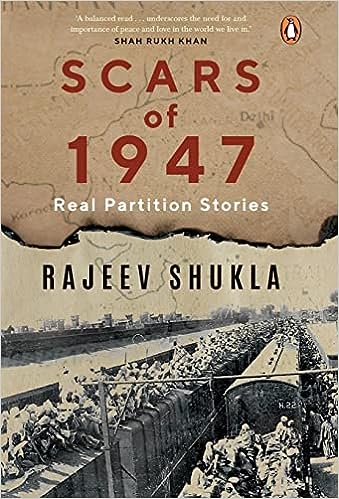
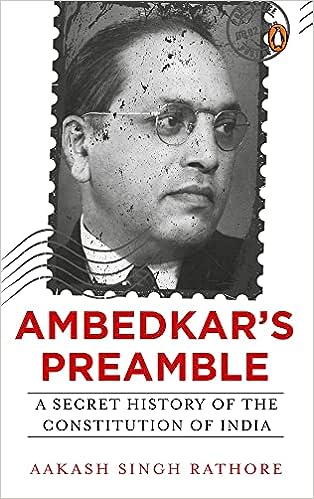
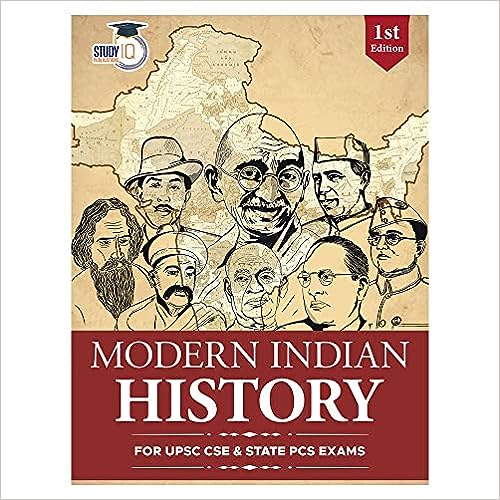
These Indian historical accounts showcase the significance of August 15th in India’s journey towards independence, nation-building, and modernization. If you’re interested in more specific events or details of educational activities on 15th August, feel free to ask in comment section!
2. Documentaries and Films: Watch documentaries or movies that provide insights into the freedom movement and the sacrifices made by individuals to secure India’s independence. Here are some documentaries and films that you might consider watching on August 15th to learn more about historical events, cultures, and significant moments:
Documentaries:
- “India’s Independence Day: The Forgotten Army” (2020): This documentary explores the history of India’s struggle for independence and focuses on the contributions of the Indian National Army led by Netaji Subhas Chandra Bose.
- “The Making of the Mahatma” (1996): This documentary explores the early life of Mahatma Gandhi and his transformation into a leader of India’s nonviolent independence movement.
- “India’s Daughter” (2015): This documentary examines the brutal gang rape and murder of a young woman in Delhi in 2012, sparking nationwide protests and discussions about women’s rights and safety in India.
- “Fire in the Blood” (2013): This documentary sheds light on the global struggle to provide affordable HIV/AIDS medication, particularly in developing countries like India, and the challenges posed by pharmaceutical patents.
- “Katiyabaaz” (2013): This documentary focuses on the issue of electricity theft and power shortages in the city of Kanpur, highlighting the socio-economic implications and the efforts of individuals to address the problem.
- “India’s Forgotten Army” (1999): This documentary tells the story of the Indian National Army (INA) and its role in the fight for India’s independence, led by Subhas Chandra Bose.
- “Bhopal: A Prayer for Rain” (2014): Although not a documentary, this film is a dramatization of the Bhopal gas tragedy of 1984, exploring the events and aftermath of one of the world’s worst industrial disasters.
- “The Battle of Bhima Koregaon” (2019): This documentary examines the history and significance of the Battle of Bhima Koregaon, a pivotal event in India’s social and political history.
- “Daughters of Mother India” (2015): This documentary delves into the aftermath of the 2012 Delhi gang rape incident and highlights efforts to bring about social change and improve women’s safety in India.
These documentaries cover a range of topics, from historical events to contemporary issues, providing insights into various aspects of Indian society and culture. Remember to check availability on streaming platforms or other sources.
Films:
- “Gandhi” (1982): This biographical film directed by Richard Attenborough depicts the life of Mahatma Gandhi and his role in India’s struggle for independence.
- “Viceroy’s House” (2017): Set in the final months of British rule in India, this historical drama portrays the challenges faced by Lord Mountbatten, the last Viceroy of India, as he oversees the transition to independence.
- “Selma” (2014): While not directly related to August 15th, this film chronicles the civil rights movement led by Dr. Martin Luther King Jr. and highlights the struggle for equality and justice.
- “Flags of Our Fathers” (2006): Directed by Clint Eastwood, this film portrays the story behind the iconic photograph of U.S. Marines raising the flag on Iwo Jima during World War II.
- “The Day India Burned: Partition” (2017): This film explores the human impact of the partition of India in 1947, focusing on the experiences of people affected by the violent upheaval.
These are just a few documentary and film suggestions that cover a range of historical events and topics. Depending on your interests, you can choose from this list or explore other options that pique your curiosity of educational activities on 15th August.
3. Visit Museums or Monuments: If possible, visit local museums, historical sites, or monuments that are related to India’s struggle for freedom. These places often provide valuable information and exhibits. Here are some museums and monuments in India that you might consider visiting for educational activities on 15th August, India’s Independence Day:
Museums:
- National Museum, New Delhi: The National Museum, New Delhi showcases a vast collection of artifacts representing India’s history, art, and cultural heritage. It’s a great place to learn about the country’s diverse past.
- National Gandhi Museum, New Delhi: Dedicated to Mahatma Gandhi, this museum provides insights into his life, philosophy, and role in India’s struggle for independence.
- Indian Museum, Kolkata: Established in 1814, Indian Museum, Kolkata is one of the oldest museums in India and features an extensive collection of art, archaeology, and natural history.
- Chhatrapati Shivaji Maharaj Vastu Sangrahalaya (formerly Prince of Wales Museum), Mumbai: This museum houses a wide range of artifacts, including sculptures, decorative arts, and artifacts from various historical periods.
- Sardar Patel Museum, Ahmedabad: Named after Sardar Vallabhbhai Patel, this museum provides insights into his life and contributions to India’s freedom movement.
Monuments:
- Red Fort, Delhi: A UNESCO World Heritage site, the Red Fort is where the Prime Minister of India hoists the national flag and delivers a speech on Independence Day.
- India Gate, Delhi: This war memorial honors soldiers who died during World War I and subsequent conflicts. It’s an important site for patriotic ceremonies.
- Gateway of India, Mumbai: This iconic monument overlooking the Arabian Sea commemorates the visit of King George V and Queen Mary to Mumbai. It holds historical significance as the point of entry for British viceroys.
- Cellular Jail, Port Blair, Andaman and Nicobar Islands: Also known as Kala Pani, this infamous jail served as a colonial prison where many Indian freedom fighters were incarcerated.
- Jallianwala Bagh, Amritsar: This public garden is a memorial to the tragic massacre that took place in 1919, when British troops fired on a gathering of unarmed civilians.
- Raj Ghat, Delhi: The memorial to Mahatma Gandhi, where he was cremated. It’s a place of reverence and reflection.
Remember to check the opening hours, entry fees, and any special events or ceremonies that might be taking place on Independence Day. Also, be mindful of any COVID-19 guidelines or restrictions that may be in place during your visit. These museums and monuments offer an opportunity to connect with India’s history and heritage while commemorating its journey to independence.
4. Biographies and Autobiographies: Explore the biographies and autobiographies of freedom fighters like Mahatma Gandhi, Jawaharlal Nehru, Bhagat Singh, and others to gain a deeper understanding of their contributions. Reading biographies and autobiographies can be a great way for engaging educational activities on 15th August to gain insights into the lives of remarkable individuals and their contributions to history, society, and culture. Here are some biographies and autobiographies you might consider exploring on August 15th:
Biographies:
- “The Story of My Experiments with Truth” by Mahatma Gandhi: Gandhi’s autobiography offers a firsthand account of his life, philosophy, and his role in India’s struggle for independence.
- “Nehru: The Invention of India” by Shashi Tharoor: This biography explores the life of Jawaharlal Nehru, India’s first Prime Minister, and his influence on shaping modern India.
- “Sardar Vallabhbhai Patel: A Life” by Rajmohan Gandhi: This biography delves into the life of Sardar Patel, the “Iron Man of India,” who played a pivotal role in the integration of princely states into the Indian Union.
- “Ambedkar: The Fight for Justice” by Dhananjay Keer: This biography delves into the life and contributions of Dr. B.R. Ambedkar, a key figure in India’s social and political transformation and the architect of the Indian Constitution.
- “Indira: India’s Most Powerful Prime Minister” by Sagarika Ghose: This biography explores the life of Indira Gandhi, India’s first female Prime Minister, and her complex political legacy.
Autobiographies:
- “My Experiments with Truth” by Mahatma Gandhi: Gandhi’s own account of his life, struggles, and philosophical evolution.
- “Wings of Fire” by A.P.J. Abdul Kalam: The autobiography of Dr. A.P.J. Abdul Kalam, India’s renowned scientist and former President, sharing his journey from a humble background to becoming a space and missile technologist.
- “Playing It My Way” by Sachin Tendulkar: The autobiography of cricket legend Sachin Tendulkar, offering insights into his cricketing career and personal experiences.
- “An Unsuitable Boy” by Karan Johar: In this candid autobiography, bollywood filmmaker Karan Johar discusses his personal life, experiences in the entertainment industry, and challenges he has faced.
- “Freedom in Exile” by Dalai Lama: The Dalai Lama’s autobiography recounts his life as the spiritual and political leader of Tibet and his experiences in exile.
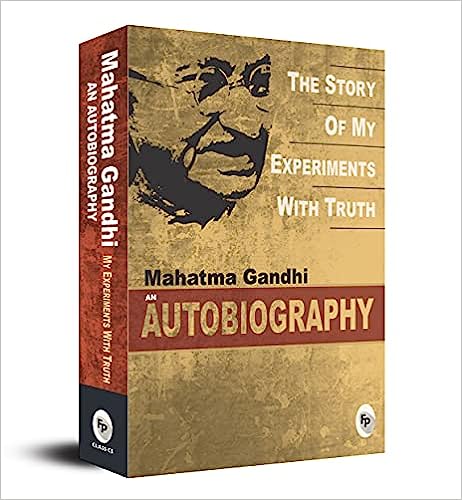
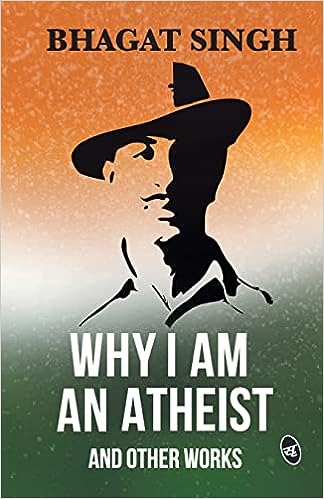
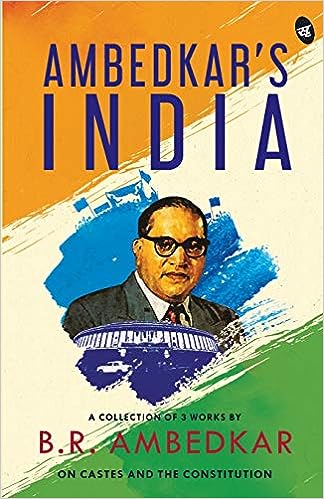
These biographies and autobiographies cover a wide range of individuals and their contributions to various fields. Educational activities on 15th August like exploring these biographies and autobiographies will be great because they can provide you with deeper insights into the lives of these remarkable figures, their struggles, achievements, and the impact they’ve had on society.
5. Write an Essay or Speech: Reflect on the significance of Independence Day and write an essay or prepare a speech on the importance of freedom, democracy, and unity.
6. Create Art and Crafts: Express your understanding of Independence Day through art and crafts. You could create posters, paintings, or other visual representations of the themes of freedom and patriotism.
7. Interactive Quizzes: Organize or participate in quizzes that test your knowledge of India’s history, independence movement, and notable personalities.
8. Online Webinars or Discussions: Look for online webinars, panel discussions, or virtual lectures that focus on India’s journey to independence and its impact on the country’s development.
9. Educational Games: Engage in games or interactive educational activities that teach about India’s history and culture is also effective educational activities on 15th August, Independence Day.
10. Map Exploration: Study the map of India and explore the various regions, states, and cities that played important roles in the freedom struggle.
11. Letter to a Freedom Fighter: Write a letter, either real or imagined, to a freedom fighter expressing your gratitude for their contributions and sharing your thoughts on the significance of their efforts.
12. Family Stories: Have conversations with older family members or relatives who may have lived through India’s independence era. Listen to their stories and experiences.
13. Online Resources: Utilize online resources like official government websites, educational platforms, and digital archives that provide information about India’s history and independence.
Engaging in educational activities on 15th August – India’s Independence Day can deepen your understanding of the nation’s past, foster a sense of patriotism, and inspire a commitment to contribute positively to society.


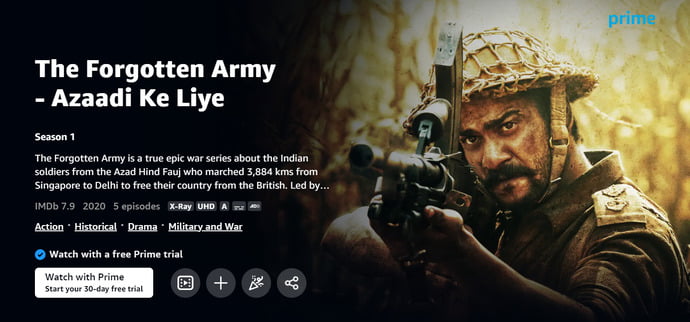




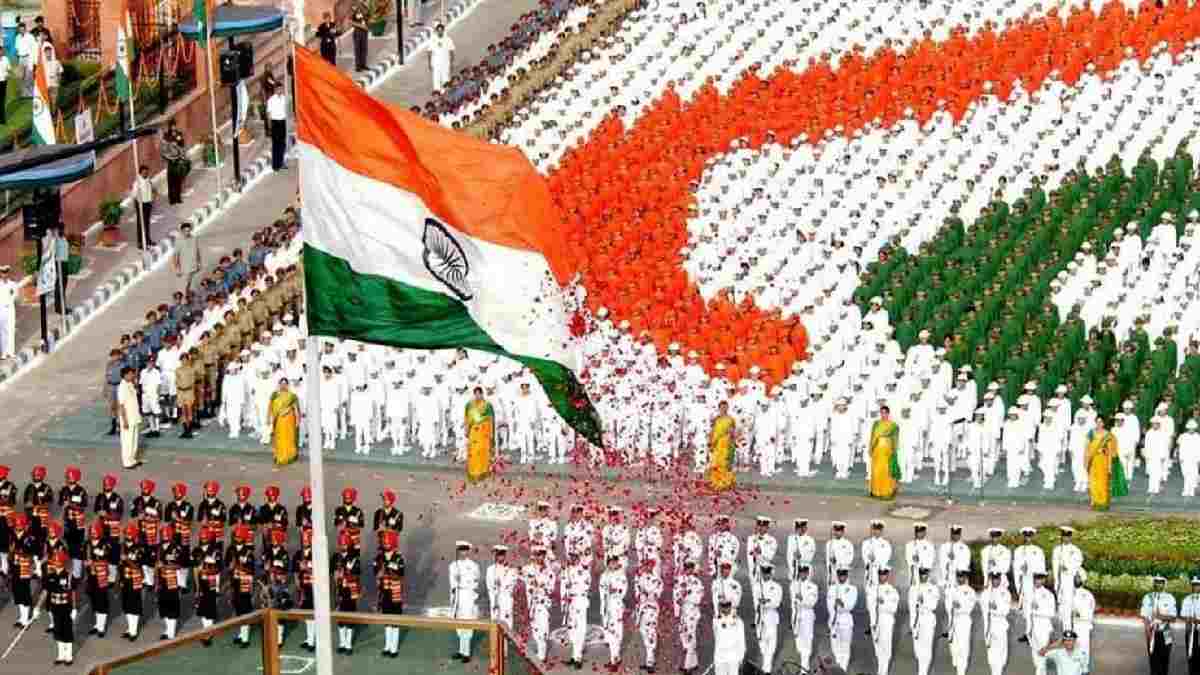
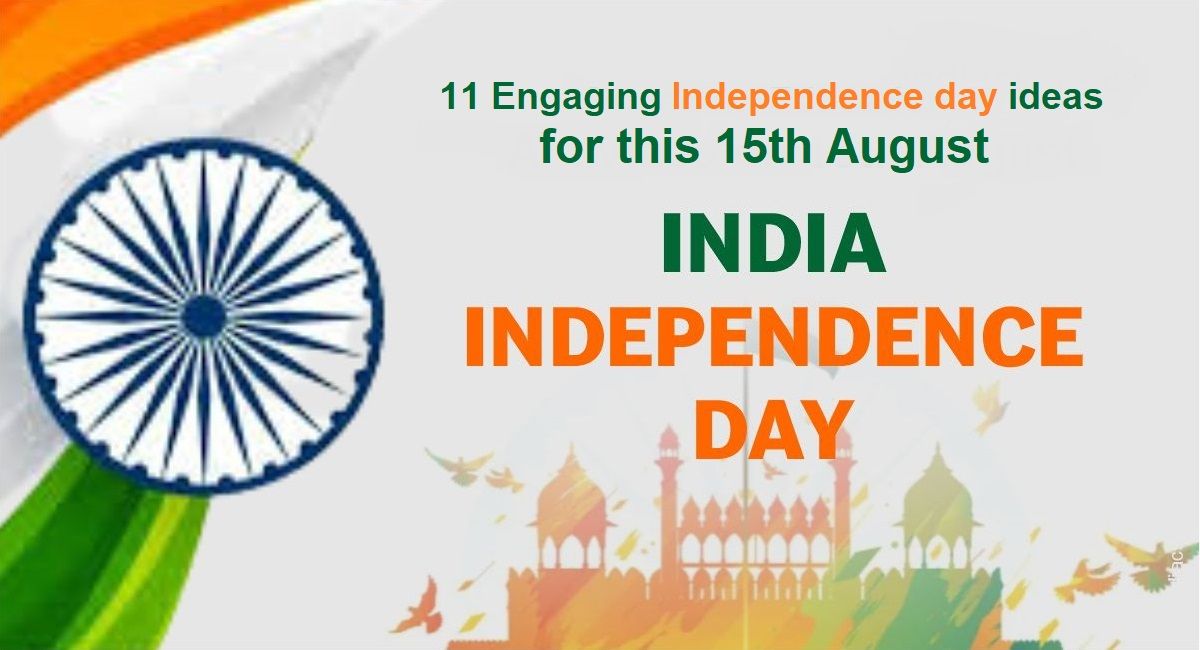
I was recommended this website by my cousin. I am not sure whether this post is written by him as nobody else know such detailed about my trouble. You are amazing! Thanks!